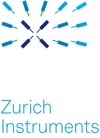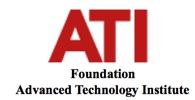Non-Contact Atomic Force Microscopy (NC-AFM) is a dynamic scanning force microscopy technique that provides true atomic resolution imaging and nanoscale manipulation capabilities on a wide range of material surfaces. In recent years, NC-AFM has undertaken a rapid evolution, and it has become a very important tool in science and nano-technology, particularly when simultaneously combining it with scanning tunneling microscopy. NC-AFM is widely spreading in the scientific community with an increasing number of groups adopting or implementing it for the study of physical and chemical properties of surface systems down to the atomic and molecular scale in a wide range of technologically relevant environments, including vacuum, liquids, biological and electrochemical solutions, and ambient conditions.
The conference welcomes contributions for oral and poster presentations dealing with one or more of the following topics:
-
•Novel instrumentation and techniques in AFM.
-
•Atomic resolution imaging on insulating substrates, semiconductors, and metals
-
•Atomic resolution imaging on molecular systems
-
•High-resolution imaging of clusters, biomolecules, and biological systems
-
•Atomic- and molecular-scale manipulation
-
•Simultaneous force and tunneling microscopy/spectroscopy
-
•High-resolution imaging and spectroscopy in liquid environments
-
•Theoretical analysis of contrast mechanisms; forces & tunneling phenomena
-
•Measuring tip-surface interactions and 2D/3D force field mapping
-
•Small amplitude and lateral force measurements using dynamic methods
-
•Mechanisms for damping and energy dissipation
-
•Measuring nanoscale charges, work function, and magnetic properties
-
•Simulation of images and virtual SPM systems
-
•Amplitude modulation mode versus non-contact mode imaging
-
•Multifrequency techniques
-
•Electrochemical applications of frequency modulation AFM
-
•Theoretical aspects of Scanning Probe Techniques







































